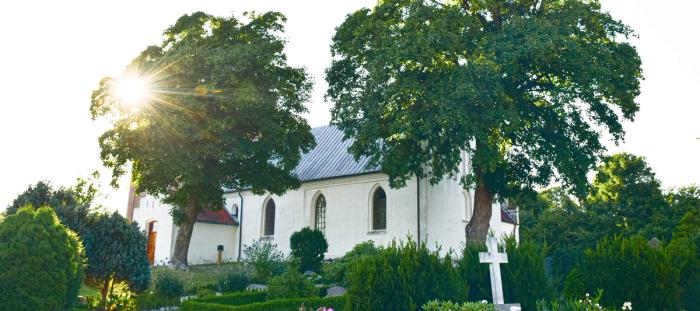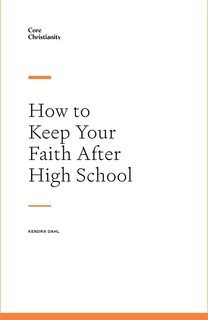As you navigate life after high school, you’re going to do a lot of figuring yourself out. Maybe you’re learning for the first time who the independent version of you is. For some people, that’s enough to want to shed a faith that has felt pressed upon them. Maybe you’re not sure those beliefs were ever yours in the first place. Or maybe you’re new to your faith and feel confused as you try to understand your Bible, and even more confused as you come across different versions of Christianity. Maybe you’re being introduced to a world of new ideas, and you don’t know how to reconcile what you’re learning in science, philosophy, or religion with what you’ve grown up believing. Maybe your friendships are expanding, and as you encounter people who view the world through a different lens, you start to feel some tension with the exclusivity of the Christian faith. Maybe you’re seeing for the first time how cruel or dogmatic some Christians can be.
Each of these experiences can start to poke holes in a weak faith, and if you’re not prepared, you may find yourself sitting in a sinking boat. It may feel like the only option is to jump ship. I was not among the rising number of evangelicals who lack basic biblical literacy, but I left the church nonetheless.
Here’s my working theory: I had a basic understanding of what the Bible said, and I knew what the church taught, but I didn’t actually know what I believed—and I definitely didn’t know why. My beliefs were unchallenged. I could recall all the Bible stories and regurgitate someone else’s apologetic argument, but when I had doubts, I just recited platitudes I didn’t really understand. When I got to college and started asking questions, that limited Bible knowledge suddenly couldn’t sustain my faith.
The fact is, whether you can win at Bible trivia or think Moses was one of the twelve apostles, having a substantive faith is crucial for staying Christian after high school. And that substance comes from knowing both what you believe and why.
You Need More Than Blind Faith
The faith that will survive in adulthood is faith that is yours. I don’t mean it all depends on you, but I mean that lasting faith is rooted in your knowledge of God, not your parents’ or your pastor’s. It should go without saying, but your beliefs should be something you actually believe!
You’ve probably heard someone accuse Christians of “blind faith.” But that’s not what the Scriptures call us to. God reveals himself to us throughout history and recorded his self-revelation for us in his Scriptures. Our faith is rooted in evidence of God’s steadfast love. Hebrews 11:1 says, “Now faith is the substance of things hoped for, the evidence of things not seen” (NKJV, emphasis added). The chapter goes on in what is often called “the hall of faith,” listing people in biblical history—the “cloud of witnesses” that has gone before us (Heb. 12:1). Notice how the writer describes their faith. It’s not blind—it’s rooted in who God is. These people knew God’s character; they trusted his promises. And so, they persevered, even for what they could not see.
Consider also the language the apostle Paul uses as he describes his courage to persevere in the midst of suffering for Christ: “But I am not ashamed, for I know whom I have believed, and I am convinced that he is able to guard until that day what has been entrusted to me” (2 Tim. 1:12, emphasis added).
You too need to know and be convinced. You need to be like the Bereans in Acts who, “received the word with all eagerness, examining the Scriptures daily to see if these things were so” (Acts 17:11). You must know what you believe.
And this process of knowing what will also help you to know why. As you examine the evidence and consider its substance, what you believe will become more than just isolated truths. You’ll be able to explain why they’re yours.
God Can Handle Your Questions
Sometimes, I think we’re afraid to ask why. At least, that’s how I felt growing up in the church. “Why” or “why not?” felt like sacrilegious questions that betrayed doubt and unbelief. If we’ve bought into the concept of blind faith, it’s easy to see how this follows. Just trust God, well-meaning people tell us as we struggle. But what are we trusting him for? And why should we trust him in the first place?
One evening, shortly after returning to the church as an adult, I attended a community group and shared with uncomfortable honesty about my distrust of God. There were too many paradoxes in my mind. How could a loving God let me experience so much suffering? How could he truly be sovereign if he is also good? How could he be just and yet merciful?
As I shared through tears, a retired pastor leaned toward me. I prepared myself for the rebuke I felt certain was coming. Instead, he put his hand on my shoulder and said, “Kendra, God can handle your questions.”
I can’t fully describe the confidence he gave me in those words. My god was weak. He was afraid of my questions. He thought I might expose something he didn’t want me to see. He thought I might find the thread that could finally unravel it all.
But this man’s God? He was unwavering. Steadfast. Faithful. Strong. He not only welcomed my questions, he wasn’t the slightest bit intimidated by them.
So, naturally, I became unrestrained in my questioning. I had nothing to lose. I’d already left the church once, and this time, I felt like it was up to God to convince me to stay. And, audacious though I was, he did.
As I read the Scriptures and asked questions of anyone willing to sit with me, Bible-in-hand, I began to see not just isolated stories, but testimonies of God’s kindness and mercy, power and patience. His unfolding plan of redemption recorded on those pages—his creation of the world, mankind’s fall into sin, God’s redemption of all things in Christ, and the sure promise of a future hope—testified to a trustworthy God. As I witnessed his wisdom in the lives of the patriarchs, I grew confident in his promises to work in and through my circumstances to accomplish his purposes, for my good and his glory (Rom. 8:28). As I observed the way he related to his people throughout history, I became more confident to approach his throne to find grace and help from my compassionate high priest (Heb. 4:16). I came to treasure the stories of Jacob, Rahab, Peter, and Paul, because they were like me—the foremost of sinners, clinging to the righteousness of Christ as our only hope for life and salvation (1 Tim. 1:15; Phil. 3:8–11). The psalms gave me language I didn’t know I could use with God—language for my doubts and questions, my fears and, even sometimes, accusations. God’s responses to his people humbled me and beckoned me. This faith that had only existed as a bunch of random facts I’d collected over the years became my family history—truths that tethered me even when I was tempted to drift.
The same can be true for you. God’s word is alive (Heb. 4:12), and it offers you a sure and steadfast anchor for your soul (Heb. 6:19). God can handle your questions—all of them.
This is an adapted excerpt from the Core booklet, How to Keep Your Faith After High School. Request your free copy here.






